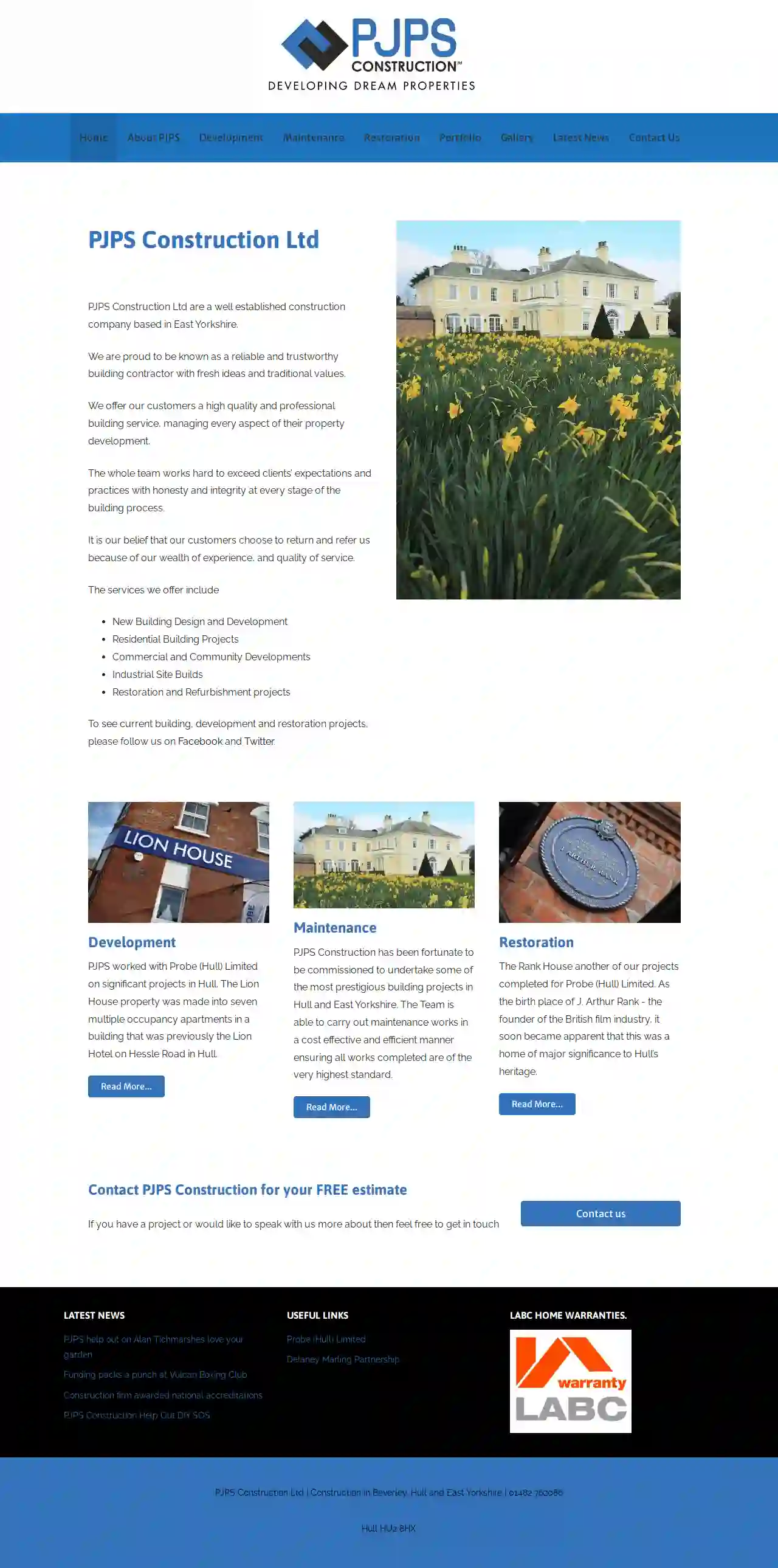Demolition Contractors Sutton on Hull
Best Demolition Contractors in Sutton on Hull
Receive multiple Local Demolition Contractors quotes for your project today! Compare profiles, reviews, accreditations, portfolio, etc... and choose the best service.

PJPS Construction Builders
56 reviewsHull, HU2 8HX, GBAbout PJPS PJPS Construction Ltd are a well established construction company based in East Yorkshire. We are proud to be known as a reliable and trustworthy building contractor with fresh ideas and traditional values. We offer our customers a high quality and professional building service, managing every aspect of their property development. The whole team works hard to exceed clients’ expectations and practices with honesty and integrity at every stage of the building process. It is our belief that our customers choose to return and refer us because of our wealth of experience, and quality of service.
- Services
- Why Us?
- Gallery
Get Quote- Ki
Kingston Clearance
3.912 reviewsKingston upon Hull, GB- Services
- Why Us?
Get Quote - Hu
Hull City Hall
4.5763 reviewsKingston upon Hull, GB- Services
- Why Us?
Get Quote - Hu
Humberside Excavations Ltd
4.73 reviewsKingston upon Hull, GB- Services
- Why Us?
Get Quote
Over 13,059+ Excavation Contractors in our network
Our excavation providers operate in Sutton on Hull & beyond!
ExcavationHQ has curated and vetted the Best Excavation Pros in and around Sutton on Hull. Find a top & trustworthy contractor today.
Frequently Asked Questions About Demolition Contractors
- Waste Generation: Demolition generates a large volume of debris, contributing to landfill space and potentially releasing harmful substances into the environment if not disposed of properly.
- Air Pollution: Dust and particulate matter released during demolition can impact air quality, affecting human health and the environment.
- Noise Pollution: Demolition activities can generate significant noise, disturbing nearby residents and wildlife.
- Resource Depletion: Demolition consumes resources that could be salvaged and reused, contributing to resource depletion and environmental degradation.
- 'Can I see proof of your licensing and insurance?' Verify their credentials and coverage.
- 'What experience do you have with projects like mine?' Ensure they have relevant expertise.
- 'Can you provide references from past clients?' Check their reputation and customer satisfaction.
- 'What are your safety protocols?' Prioritize contractors who emphasize safety.
- 'How will you handle hazardous materials?' Ensure they have proper procedures for asbestos or lead abatement.
- 'What is your timeline for completing the project?' Understand the project duration.
- 'How will you manage noise, dust, and debris?' Discuss mitigation measures for minimizing disruption.
- 'What are your payment terms?' Clarify payment schedules and any required deposits.
- Recycling: Concrete, brick, metal, and wood can be recycled and reused in other construction projects, reducing waste sent to landfills.
- Landfill Disposal: Non-recyclable materials are disposed of in designated landfills according to local regulations.
- Donation: Some materials, such as fixtures or appliances, may be suitable for donation to charitable organizations.
What are the environmental impacts of demolition?
What questions should I ask a demolition contractor before hiring them?
Do I need a permit for demolition?
What happens to the debris after demolition?
What are the environmental impacts of demolition?
- Waste Generation: Demolition generates a large volume of debris, contributing to landfill space and potentially releasing harmful substances into the environment if not disposed of properly.
- Air Pollution: Dust and particulate matter released during demolition can impact air quality, affecting human health and the environment.
- Noise Pollution: Demolition activities can generate significant noise, disturbing nearby residents and wildlife.
- Resource Depletion: Demolition consumes resources that could be salvaged and reused, contributing to resource depletion and environmental degradation.
What questions should I ask a demolition contractor before hiring them?
- 'Can I see proof of your licensing and insurance?' Verify their credentials and coverage.
- 'What experience do you have with projects like mine?' Ensure they have relevant expertise.
- 'Can you provide references from past clients?' Check their reputation and customer satisfaction.
- 'What are your safety protocols?' Prioritize contractors who emphasize safety.
- 'How will you handle hazardous materials?' Ensure they have proper procedures for asbestos or lead abatement.
- 'What is your timeline for completing the project?' Understand the project duration.
- 'How will you manage noise, dust, and debris?' Discuss mitigation measures for minimizing disruption.
- 'What are your payment terms?' Clarify payment schedules and any required deposits.
Do I need a permit for demolition?
What happens to the debris after demolition?
- Recycling: Concrete, brick, metal, and wood can be recycled and reused in other construction projects, reducing waste sent to landfills.
- Landfill Disposal: Non-recyclable materials are disposed of in designated landfills according to local regulations.
- Donation: Some materials, such as fixtures or appliances, may be suitable for donation to charitable organizations.